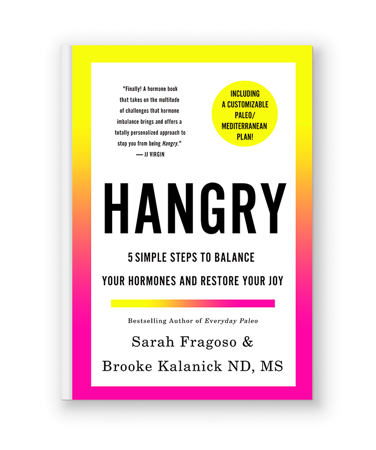
As a naturopathic and functional medicine doc I am often far from the first stop for women that are trying to feel better.
They’ve typically attempted to seek help from their primary care doc or gynecologist – often for several years. This is in part because of their ongoing relationship with their doc or they are trying to get insurance coverage or perhaps because they don’t even know about functional medicine or alternative options.
The broken nature of our healthcare system is the subject of another blog post, but what I hope to do here is let women know a few fundamental truths as they express concern about such common female hormone issues ranging from irregular or painful periods and PMS, to fatigue and weight gain, difficulty sleeping or anxiety and depression.
Knowing these things can help you get care for the causes of your symptoms and avoid band-aid approaches that can simply delay you needing to deal with your hormones or in some cases, make your underlying issues even worse.
#1 The Pill Will Not Fix Your Female Hormone Issues
The pill is unfortunately the knee jerk prescription response to pretty much everything that ails a woman – especially if it has to do with her period.
Here’s the truth though: while the pill certainly is an effective contraception and may work for some women to alleviate their symptoms it does not fix hormonal imbalances. Whatever imbalances are causing your symptoms now will likely be there – and most often worse – when you stop the pill.
While it’s easy to get behind the idea of birth control for women (can I get an amen!), around 60% of women taking the pill are not using it for birth control but rather to manage other symptoms such as acne, irregular periods, heavy bleeding, etc.The pill won’t resolve the root causes behind these issues and can make many of them worse. Not to mention it’s been shown to increase inflammation, wreak havoc on our gut microbiome, create a host of nutrient deficiencies and can worse depression.
Some women will want to keep the pill for a variety of reasons and the beauty of it all if that’s their choice! I’m grateful women have choices, we need information and we need options. There’s no doubt the birth control pill offers some freedom from unwanted pregnancy and even certain hormonal symptoms but if you’re being offered the pill to fix your hormone issues or “regulate” your period don’t buy it. In fact the “bleed” you get on the pill is not even a real period but rather the bleed you get on the pill is a withdrawal bleed and not a sign of better balanced hormones.
Want to know more about transitioning off hormonal birth control you can grab this FREE download and be sure to check out our recent podcast with Dr Jolene Brighten, leading expert in Post Birth Control Syndrome.
As a woman with PCOS I’ve done my time on the pill which never went great for me but I didn’t know about other options. YOu can learn more about PCOS and the pill in this post.
Women deserve to know how their body works, they deserve information and they deserve options. The pill is handed out to younger and older women alike with no discussion of options or downsides. Get informed and know it’s one option but not the only option for female hormone issues.
#2 Synthroid Is Not The Only Thyroid Medication And It May Not Be The Best One For You
Synthroid is one of the most commonly prescribed meds in the US and thank goodness we have it as every cell in your body needs thyroid hormone – if you can’t make it, you gotta take it!
However, most women in need of thyroid hormone replacement are given Synthroid or it’s generic (levothryoxine) and sent on their way. Sometimes it works, sometimes it doesn’t, other times it works only for a bit and then you’re back to feeling like garbage.
When it comes to treating thyroid issues we need to look at the entire thyroid cascade from the top (hypothalamus and pituitary) on down (thyroid gland itself on down to the cells in which it works).
All of these steps need to be working properly for you to have adequate thyroid function and Synthroid won’t do a darn thing for several of them.
The brain (pituitary) signals your thyroid via TSH (thyroid stimulating hormone) to make thyroid hormones (mostly T4, small amount of T3). If the TSH signal isn’t strong enough to get your thyroid to make T4, stress or inflammation may be to blame and if you fix that you may not need medication at all.
If you make T4 or take Synthroid (synthetic T4) that needs to be converted into T3, active thyroid hormone. This conversion needs selenium and zinc and again is bogged down from stress and inflammation. If you don’t do this well even with these nutrients you may need a T3 medication like Cyotmel or a bioidentical combination thyroid hormone such as Armour or Naturethroid.
From here, all this T3 needs to be shuttled around your body on a protein carrier but then must come off in order to bind a receptor on your cell. Too little or too many of these binding proteins creates a problem and that balance is affected by estrogen and testosterone. For example, the pill will drive down free T3 (active, free thyroid hormone -the good stuff) by causing an increase in thyroid binding proteins and you won’t fix this problem by taking more Synthroid.
And that’s not all. T4 can also go down a deactivation pathway called reverse T3 and this process is sped up by inflammation and infection – again more Synthroid isn’t the answer here, you want to be resolving what’s driving the T4 down this reverse T3 pathway.
You also need a healthy gut to have adequate T3 levels, that takes working on your gut bacterial balance, eating foods that work for you, and again won’t be solved with Synthroid alone.
You may also have Hashimoto’s antibodies (TPO or TAA on your blood tests) as part of your hypothyroidism picture. This is an autoimmune condition that also needs to be dealt with and while Synthroid may elevate your thyroid hormone levels if they are low, it won’t impact this autoimmune process going on which may in and of itself create a host of low thyroid looking symptoms like fatigue, depression, brain fog, weight gain, etc.
So you may need Synthroid or you may do better on Synthroid and Cytomel (T4 and T3) or a bioidentical thyroid medicine like Armour. Or you may need to get your stress, inflammation, gut health and estrogen in check with or without Synthroid in the mix.
The takeaway is that this entire thyroid physiology should be taken into account when you get thyroid treatment but sadly the Synthroid prescription is the end of the story. Whether you’re on Synthroid or not, be sure you’re looking at each step of the pathway in order to feel better and optimize thyroid function.
Need help? I work with patients long distance via phone and Skype so please reach out if you need me!
Get your FREE copy of my Guide To Lab Testing & Your Hormones
This guide covers hormonal testing and thyroid patterns and will show you how to suss out the Hormonal Dealbreakers of inflammation, anemia and blood sugar problems.
Click Here#3 Depression May Be Due to Low Thyroid, Inflammation, Low Vitamin D Or A Host Of Other Things And Have Nothing To Do With You Needing An Antidepressant
Low mood and depression are sadly common symptoms in women seeking help from their PCP or OB. All too often an SSRI such as Lexapro is given assuming all depression is due to not having enough of the neurotransmitter serotonin.
Serotonin is certainly a key player in having a happy mood however, we are beginning to look at depression differently. Sadly though the wheels of medicine turn very, very slowly so it’s still SSRIs for pretty much every complaint of low mood. But know that inflammation – from over-training, stress, lack of sleep, eating food that don’t work for you, eating too many processed seed oils such as canola oil, having autoimmunity such as Hashimoto’s, etc. – creates not only inflammation in your body but in your brain as well. And THAT make us depressed, leaves us foggy headed, make sit hard to think straight.
Low vitamin D, low estrogen and low thyroid can all also have depression as a prime symptom so know that there may be an underlying cause for your low mood that has little to do with serotonin at all.
Now if an SSRI helps you and doesn’t give you unwanted side effects like a flat mood or low libido, all good. But know that if it hasn’t helped you or even before you start it, that there are other things that should be investigated as a root cause of your depression.
Maybe you can feel much happier with a change in your workout or nutrition, from a bump up in vitamin D or thyroid hormones and that’s worth looking into because inflammation, low thyroid, etc. will have other unwanted symptoms such as fatigue, weight gain and can impact your female hormone balance.
#4 “It’s Just Stress” Is Not A Diagnosis
Oh, this one just gets under my skin. When a woman is discussing her symptoms of fatigue, insomnia, mood swings, period problems, weight gain or breakouts and is told, “It’s probably just stress” and sent on her way it’s an absolute shame.
Stress is a cause, not a diagnosis.
It’s also a cause that’s brushed off as no biggie because well, we’re all pretty stressed out! It’s become the norm but that doesn’t’ make stress benign, far from it.
Is the cause of your fatigue, weight gain, insomnia, breakouts, wonky female hormones, digestive upset, feeling overwhelmed, etc. stress? It may very well be! And it’s a because we can deal with.
Cortisol is what I call a master hormone in that if cortisol ain’t happy, none of your hormones are happy! Stress and cortisol quickly create a nasty ripple effect of hormone haywire across your entire hormonal landscape. It’s quick, it’s effective and it makes a real mess.
So yes it may be stress that is driving your symptoms but “It’s just stress” should not be given as a dismissal. Rather it should sound and alarm that holy smokes girl, we gotta make some changes because stress is clearly wreaking havoc on your hormones and your happiness.
Sometimes we know where our stress is coming from and it’s an easy fix, other times it’s a lot more complicated. Situations can’t always change immediately so we need better coping skills.
This is a large part of what we teach and share on the podcast and will dive deep into in our upcoming book HANGRY’s Five Pillars. Grab a FREE guide to living the Five Pillars here:
Order Hangry right now!
If you’ve ever felt like a Hangry B*tch and are ready to balance your hormones and restore your joy in just 5 simple steps then Hangry is for you!
GET YOUR COPY NOW
Other times, it’ shard to track down where exactly that stress is coming from and it can come from a hundred different places
Here’s just a few:
- Blood sugar imbalances
- Eating foods that don’t work for you
- Doing the wrong exercise
- Lack of sleep
- A host of biochemical imbalances ranging from anemias, oxidative stress, electrolyte imbalances and inflammation, nutrient deficiencies
- Overwhelm
- Feeling unsupported
- Worry over money, relationships or your family
- Constantly being negative about your body #beyourbestfriend
- Not feeling like you can just be yourself #bewhoyouare
#5 Your Burnout, Overwhelm, Unhappiness Should Not Be Chalked Up To Any Of These
- You’re a mom, of course you’re overwhelmed and exhausted!
- You’re just getting older, of course you’re gaining weight.
- You’re just like every other woman in my practice, this is just how all women feel.
We far too often confuse common with normal. Just because most women feel this way doesn’t not mean it’s normal and it does not make it OK.
I understand physicians are strapped for time and are functioning within a medical and insurance model not conducive to helping women figure out what to eat, how to exercise or how to better manage their stress BUT that does not excuse any docs from dismissing your very real symptoms that are impacting your life, stealing your joy and leaving you to feel like a stranger in your body.
You have to advocate for yourself and work with your doc or find one that’s able to give you the help you deserve. Be brave, when you know something isn’t right don’t give up. Keep asking, keep advocating, keep fighting to feel better.
And if you want another member on your health team, please reach out! I’m here for you.
